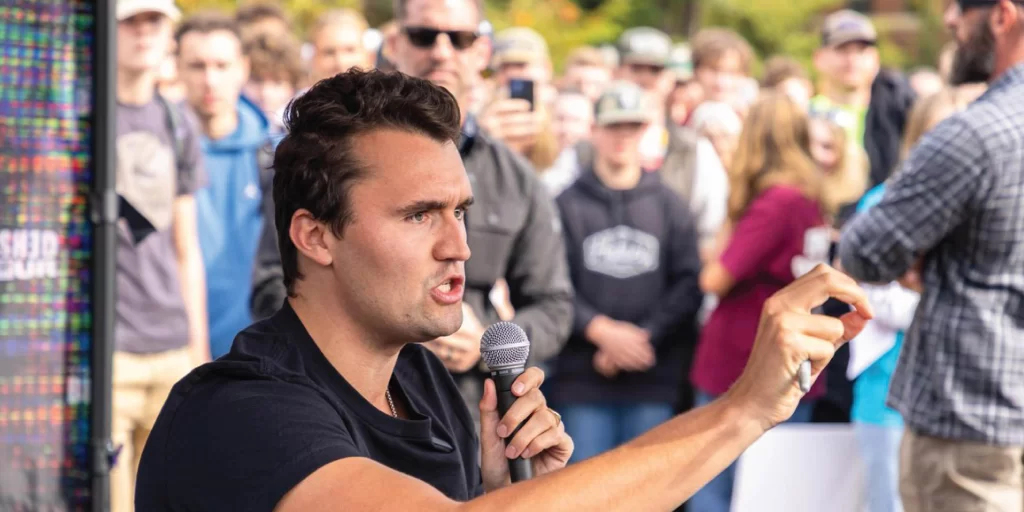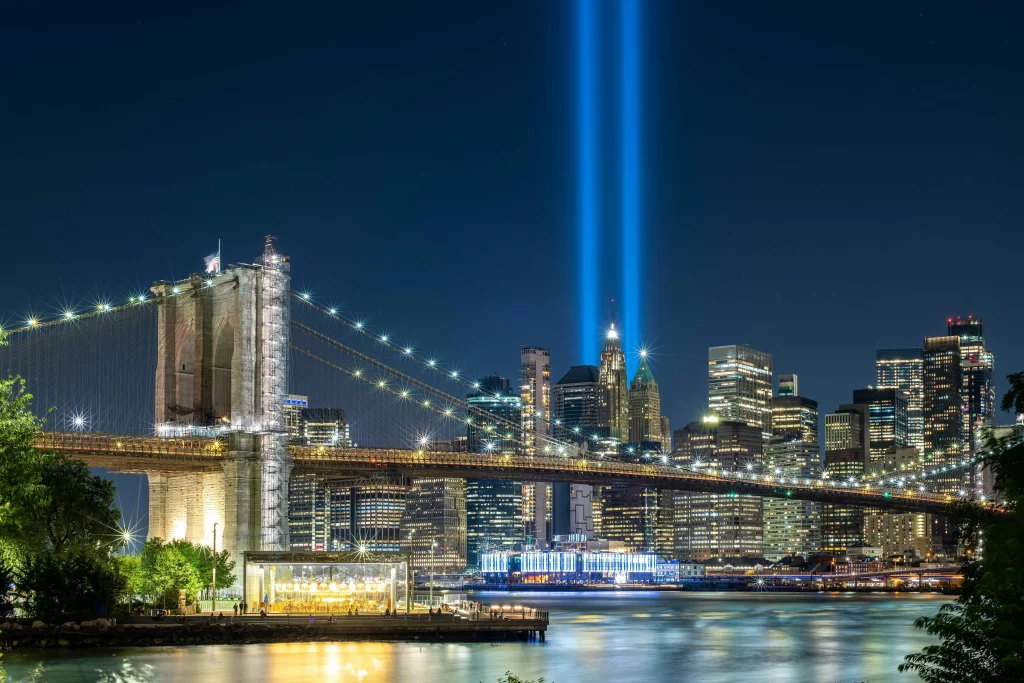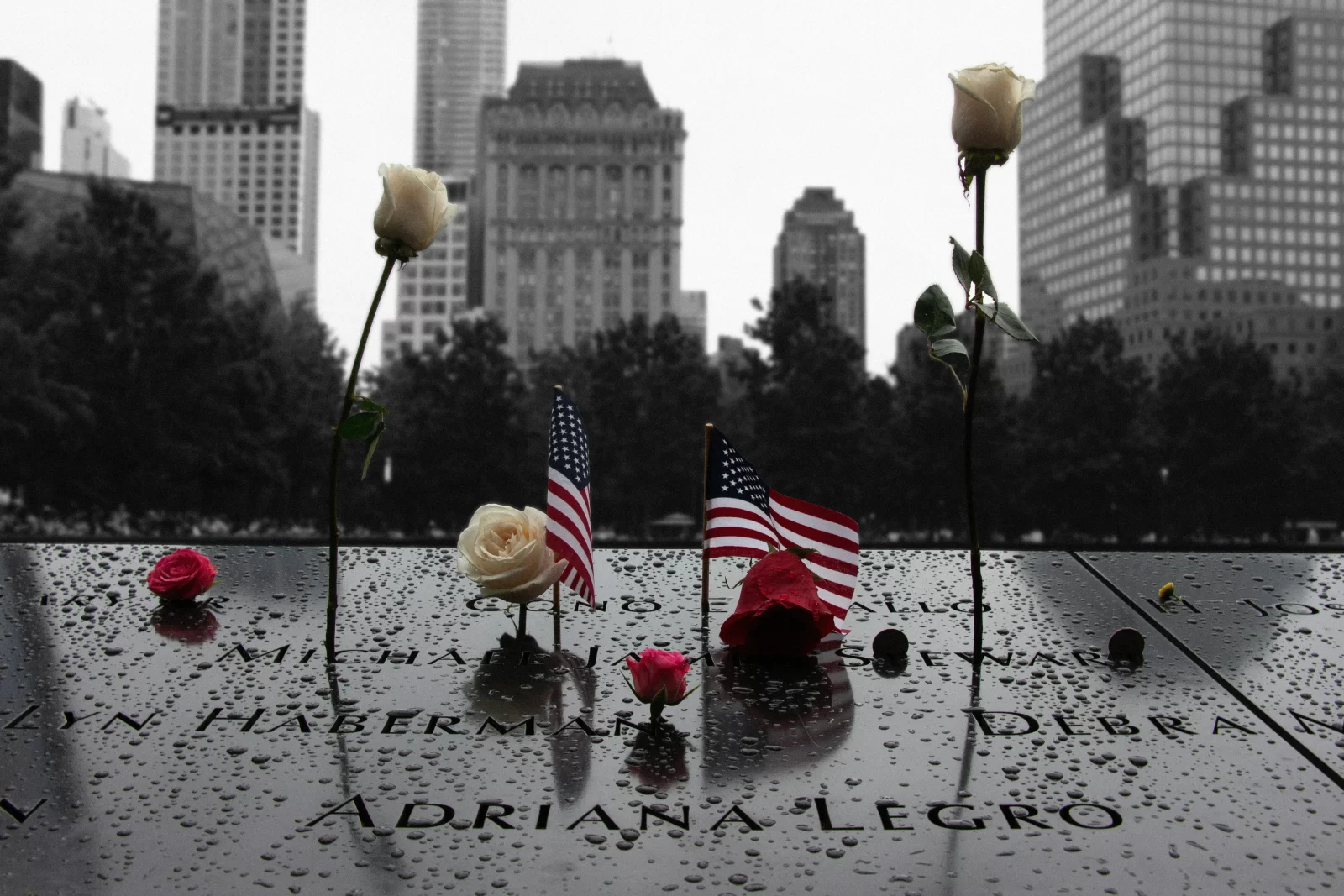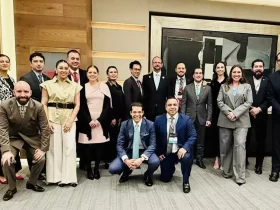Every year, when September 11 arrives, the United States pauses to remember. It is a day when collective memory fills with silence, with restrained tears, and with a historical weight that time has not managed to lift. It has now been 24 years since that morning in 2001 that forever changed the course of the nation and the world.
That day was not only marked by the fall of the Twin Towers, the attack on the Pentagon, and the heroic resistance aboard Flight 93. It was also the breaking point of a sense of security that had once seemed unshakable. Nearly 3,000 lives were lost, thousands of families were shattered, and the echo of sirens in New York and Washington left scars that will never fully heal. And while the annual rituals of remembrance may feel repetitive, each anniversary reminds us that the mourning remains alive.
A Nation Still Carrying 9/11
The impact of September 11 did not end when the fires were extinguished or when the rubble at Ground Zero was finally cleared away. Over the past two decades, many first responders and survivors have faced serious respiratory illnesses and long-term health complications as a direct consequence of their exposure that day. For them, 9/11 is not only a date on the calendar—it is a wound that still opens each time their bodies remind them of what they endured.
In New York, as in years past, the families of victims will gather to read aloud the names of those who died. Each name represents a life, a story cut short, a home left incomplete. Moments of silence will mark the exact times when the planes struck the towers, underscoring how fragile everyday routines can be, and how swiftly tragedy can change the course of history.
Later tonight, the “Tribute in Light” will once again rise above Manhattan: two powerful beams shining into the night sky, echoing the silhouette of the fallen Twin Towers. This gesture, by now a tradition, is more than a symbolic tribute. It is a reminder of resilience—the ability of the country to stand again after being struck so deeply.
A Commemoration Amid Recent Violence
This year, however, the anniversary arrives at a particularly fragile moment. Just yesterday, the nation was shaken by the news of the shooting of Charlie Kirk, which occurred while he was delivering a speech at a university in Utah. Regardless of political or ideological differences, this violent act reignited a sense of vulnerability, a reminder that violence can erupt even in the spaces we consider most ordinary.
Placed alongside the memory of 9/11, the message is sobering: violence, whether it takes the form of international terrorism or domestic attacks, remains a threat that undermines the foundations of our coexistence. For many citizens, these days carry a heavy mixture of grief for what happened 24 years ago and anxiety about the divisions and dangers still present in our society today.

The Danger of Forgetting the True Message
Today’s commemorative events will include the presence of political leaders and national authorities. Their attendance is significant, as institutions too are part of the mourning process. Yet it is worth emphasizing something crucial: this date must not be reduced to a political stage. September 11 is, above all, a day of respect for those who lost their lives, for their families, and for the brave individuals who risked everything in the rescue efforts.
To weaponize memory for political gain would dishonor the meaning of this day. The true purpose of September 11 remembrance is unity and reflection. Our collective memory should not be a source of further division, but rather a reminder of the strength that comes from standing together.
A Call for Peace and Nonviolence
More than ever, the United States needs a clear message: peace is the only path forward. Security is undoubtedly vital in any society, but so too are commitments to nonviolence, respect, and dialogue. The attacks of 9/11 showed us the devastation hatred can unleash when carried to its extremes. The shooting of Charlie Kirk reminds us that the same destructive force can also emerge within our own communities.
The challenge before us is not only to prevent future attacks but also to transform our culture into one where violence is no longer an option. That means creating spaces to listen, to debate without destroying, to recognize the inherent dignity of those who think differently. It may sound idealistic, but history has shown us that reconciliation always begins with a shift in individual consciousness.
Honoring the Past by Building the Future
Each September 11 gives us an opportunity: to remember the past while shaping the future. It is not about forgetting the pain or minimizing the losses, but about learning from them so that cycles of hatred and retaliation do not repeat themselves. The best way to honor those who died is to ensure that their sacrifice inspires a more humane society.
Imagine, for a moment, what it would mean for this anniversary to be remembered not only through solemn ceremonies, but also through initiatives for peace, community projects, and gestures of reconciliation. Imagine the “Tribute in Light” beams not only as symbols of absence, but as inspirations guiding us toward understanding and hope.

A Nation in Search of Hope
It is natural that today many will feel discouraged. The memory of 9/11, compounded by recent acts of violence, can leave us vulnerable and weary. Yet it is equally true that in the darkest moments, a people’s greatest strength often shines through. Resilience is not the denial of pain, but the courage to face it with the conviction that something different can still be built.
Today, as the bells ring in New York, as the names are read in Pennsylvania, and as silence fills the Pentagon, every citizen has the opportunity to make this day more than just a remembrance. It can become a renewed commitment: to reject violence, to cultivate peace, and to choose respect as our compass in uncertain times.
Final Thoughts
September 11 remains an open wound, but it can also be a starting point. In the midst of grief and uncertainty, we must remember that peace is not a distant ideal—it is a pressing necessity. If this nation truly wishes to honor its dead, if it hopes to transform sadness into hope, it must once again believe that life, dignity, and respect are worth more than any ideology or agenda.
Tonight, as we look to the sky illuminated by the two beams of light, let us remember that they are not only a tribute to the past. They are also a guide for the future: a future where violence has no place, and where peace stands as the true legacy of September 11.








































Leave a Reply